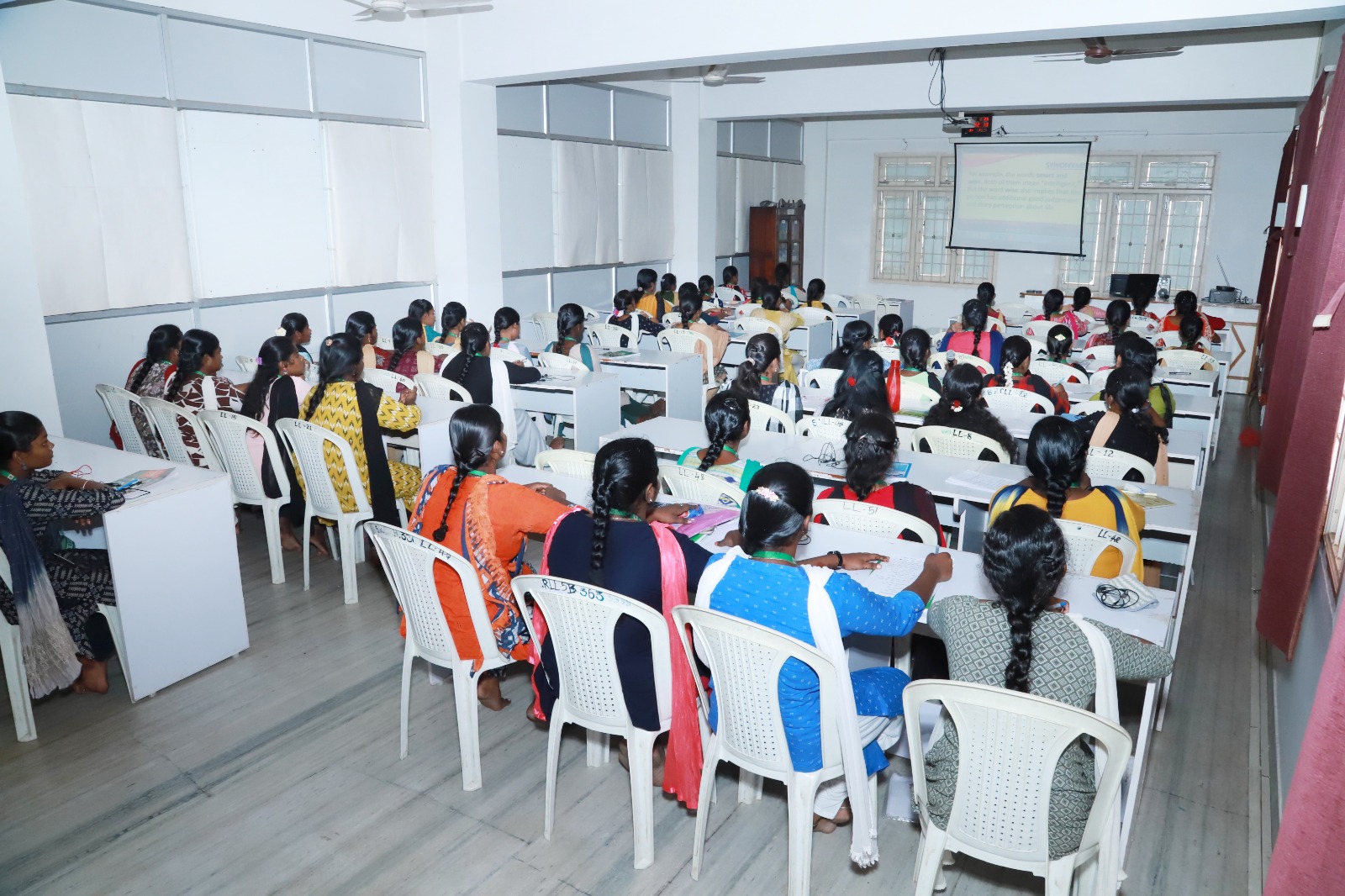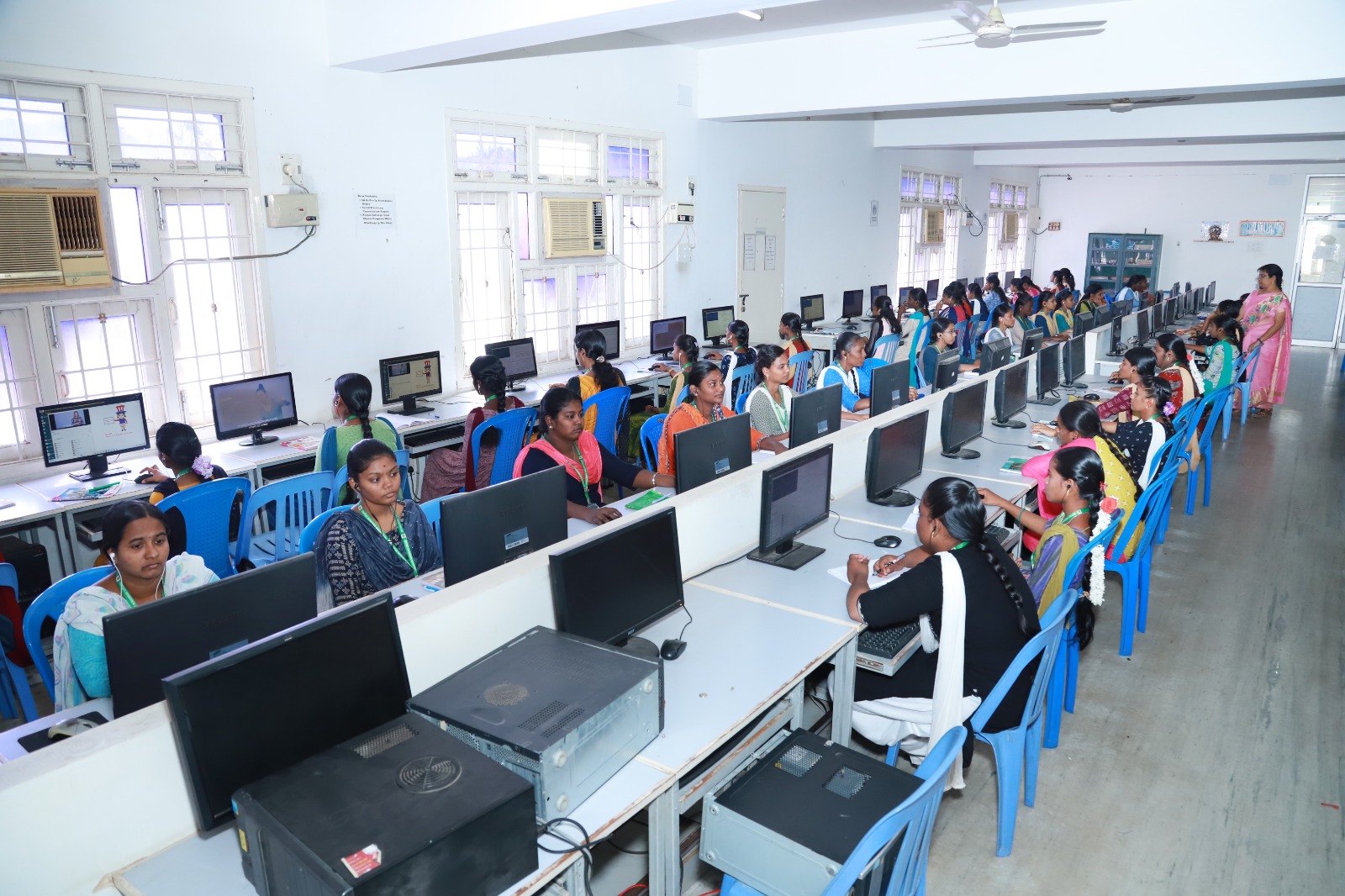 |
 |
The English language lab of Seethalakshmi Ramaswami College helps to enhance linguistic skills of students and prepares them for a globalized world. Language lab course is mandatory for the first year UG students of all streams. Many students come from non-English speaking backgrounds and the language lab sessions play a crucial role in helping them integrate English language with their day to day life. The Language Lab has become increasingly prominent as a model to enhance English communication skills among students. This also helps students engage in conversation practice, pronunciation exercises and role-playing scenarios which foster confidence and fluency. The English Language Lab is well-equipped with around 60 computers and installed with language learning software. The Language Lab software offers access to LMS for the learning of English language skills. This software provides audio materials such as dialogues, speeches and lectures helping the students improve their listening skills and this material also allows the students listen to native speakers and practice their pronunciation in real time. Nearly 1000 students get benefited out of this programme every year.
Goal
- To initiate the I year Undergraduate students into the process of acquiring the skills for communicating in English
Objectives
- To bolster their self-esteem and to build their self-confidence
- To enhance their Listening, Speaking, Vocabulary and Pronunciation skills
- To train them to become better users of English
Facilities
- Language learning software
- Need- based graded modules developed by the faculty
- Graded audio lessons
- Interactive video lessons
- CDs and DVDs on communication practice
- Books & workbooks Learning, Speaking, Reading and Writing (LSRW) skills
- Dictionaries
Syllabus
The syllabus is designed in such a way to promote holistic learning. The content of the syllabus is divided into 15 modules which include self-introduction, greetings, using naming words, pronouns, action words, prepositions, descriptive words in continuous speech, questions and responses in everyday conversation and conversation practice. Intense and rigorous training is given to all the I year undergraduate students to enable them become effective users of English.
Skill Components
- Listening skills
- Comprehension skills
- Interactive skills
- Personality skills
Activities
- Self-introduction
- Speech Practice
- Pronunciation Practice
- Responding to Situations
- Conversation Practice
- Argument
- Group discussion
- Role play
- Vocabulary games
Learning Outcomes
- Learners become confident users of English as they shed their inhibition in the learning environment
- Learn the scope of using English in the academic and non-academic contexts